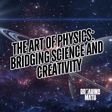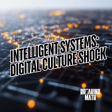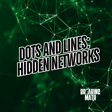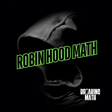
The Giant Leap
In this conversation, Dr. Caleb Scharf discusses the evolution of space exploration, drawing parallels to historical figures like Darwin. He explores the implications of humanity's expansion into space, the challenges of microgravity, and the allure of Mars as a potential habitat. Scharf emphasizes the interconnectedness of space exploration with our daily lives and the future of humanity as a dispersed entity across the solar system.
Sign up for Writing Math: https://http://www.fields.utoronto.ca/activities/25-26/writing-math
Takeaways
- Humanity's move into space is a new phase of evolution.
- Space exploration is a continuation of life's four billion year experiment.
- Microgravity affects human physiology in profound ways.
- Mars presents both challenges and opportunities for human exploration.
- Lagrange points offer stable locations for spacecraft in orbit.
- The moon's composition is closely related to Earth's.
- Understanding space exploration is crucial for our future as a species.
Chapters
- 00:00 The Concept of Dispersal in Space Exploration
- 04:54 The Universe's Self-Awareness and Its Implications
- 08:32 Darwin's Influence on Space Exploration
- 14:14 Historical Figures in Science and Their Impact
- 21:59 The Moon Landing: A Complicated History
- 28:14 Challenges in Spacecraft Navigation
- 30:13 Effects of Microgravity on Humans and Animals
- 33:50 The Drive for Interplanetary Exploration
- 36:39 Understanding Lagrange Points
- 42:06 Life on Other Planets: Mars and Beyond
- 48:40 The Future of Humanity in Space
- 54:41 The Essence of Curiosity
- 54:57 Embracing the Unknown
Follow Caleb Scarf on Twitter, Website, and find his new book here.
Subscribe to Breaking Math wherever you get your podcasts.
Follow Breaking Math on Twitter, Instagram, LinkedIn, Website, YouTube, TikTok
Follow Autumn on Twitter, BlueSky, and Instagram
Become a guest here
email: breakingmathpodcast@gmail.com



















